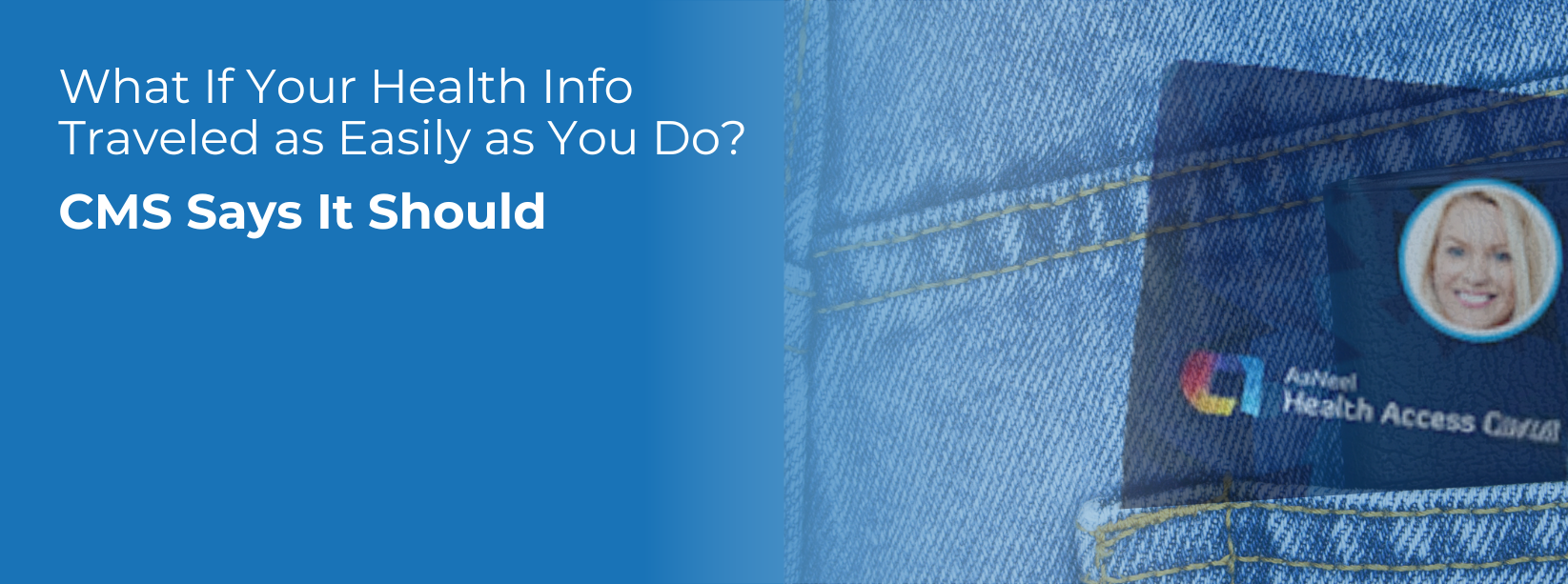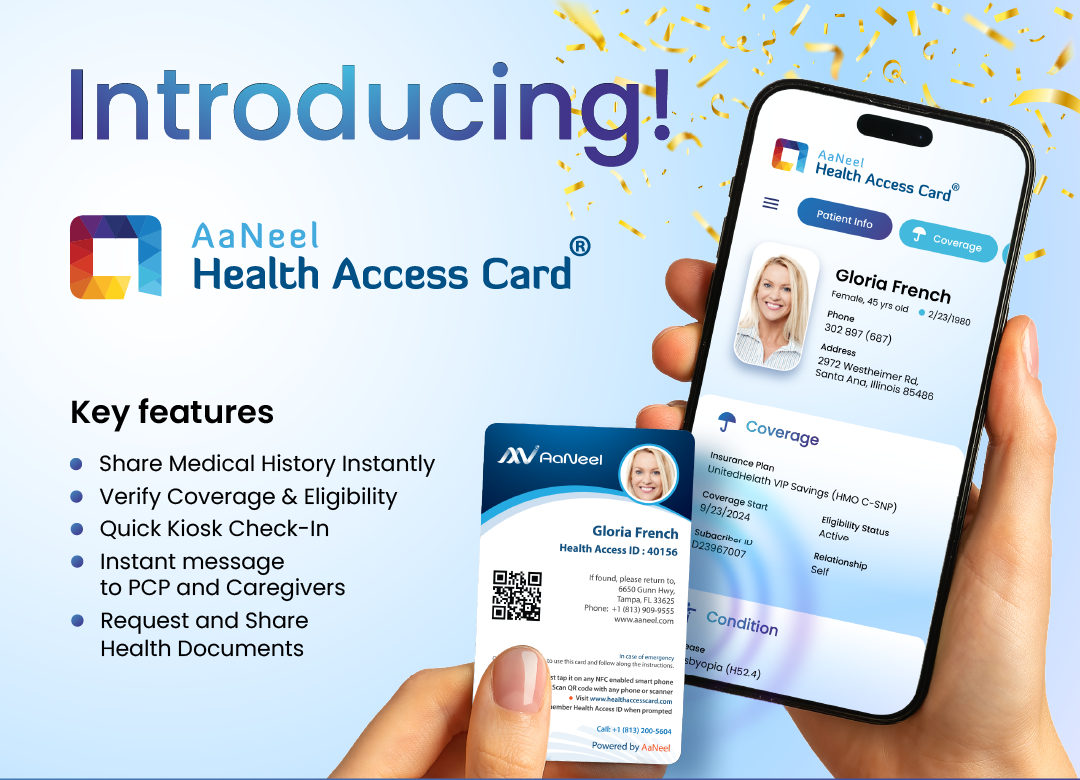| Certification Criterion |
Description of Capability |
Example Description of Capability |
Regulation |
Costs or Fees
Costs or fees that may be required to support the implementation and/or use of the capability -OR- in connection with data generated using the capability. |
| Electronic Health Information export |
170.315 (b)(10) |
Enables a user to electronically export health information at individual patient level or for the entire patient population without developer assistance, providing data in computable electronic format with a publicly accessible hyperlink to AaNeel’s export file technical specifications. |
This functionality enables a user to extract reporting data without assistance. The reporting data will be based on criteria selected by the user which will allow user to export the data for their entire patient population or will allow the user to drill down to individual patient(s). When user exports the file, a hyperlink to a publicly accessible page is provided at the header of the file export. The hyperlink will allow one to access the technical specifications file for the electronic export file provided in a computable format. |
AaNeelCare is licensed to customers as per the terms of the User Agreement; no additional software required to use the capability, all required is included in AaNeelCare. |
| Clinical quality measures (CQMs) — record and export |
§170.315(c)(1) |
Enables a user to electronically record all data necessary to calculate Clinical Quality Measures (CQMs) presented for certification. |
This functionality enables a user to electronically capture and export all the data necessary to calculate each of the supported Clinical Quality Measures (CQM), including the codification of CQM exceptions and exclusion. |
AaNeelCare is licensed to customers as per the terms of the User Agreement; additional software and/or licensing fees may be required to use the capability. |
| Clinical quality measures (CQMs) — import and calculate |
§170.315(c)(2) |
Enables users to import a data file formatted in accordance with HL7 QRDA Category I Release 3 or the corresponding version of the Quality Reporting Document Architecture (QRDA) standard for the CMS annual measure update being certified for one or multiple patients in order to perform calculations on the Clinical Quality Measures (CQMs) presented for certification. |
This functionality enables a user to electronically import all the captured data needed to calculate each of the supported Clinical Quality Measures (CQM), and to calculate each certified CQM using the Quality Reporting Document Architecture standard. |
AaNeelCare is licensed to customers as per the terms of the User Agreement; additional software and/or licensing fees may be required to use the capability. |
| Clinical quality measures (CQMs) — report |
§170.315(c)(3) |
Enables a user to electronically create a data file for transmission of Clinical Quality Measures (CQMs) data in accordance with the CMS Quality Reporting Document Architecture (QRDA) standard. |
This functionality enables a user to electronically create a data file for transmission of Clinical Quality Measures (CQM) data according to the Quality Reporting Document Architecture standard. |
AaNeelCare is licensed to customers as per the terms of the User Agreement; additional software and/or licensing fees may be required to use the capability. |
| Clinical quality measures (CQMs) — filter |
§170.315(c)(4) |
Enables users to record the data listed in §170.315 (c)(4)(iii) in accordance with the identified standards where specified. |
This functionality enables a user to electronically filter by any combination of the proposed data elements (i.e., by any one data element (e.g., provider type) or a combination of any of the data elements). |
AaNeelCare is licensed to customers as per the terms of the User Agreement; no additional software required to use the capability, all required is included in AaNeelCare. |
| Authentication, access control, authorization |
§170.315(d)(1) |
Requires user’s unique identifier(s) (e.g., username or number) is/are verified by AaNeelCare as the one claimed prior to receiving access to electronic health information. |
Managing authorized and authenticated users access to the My Health EHR |
AaNeelCare is licensed to customers as per the terms of the User Agreement; no additional software required to use the capability, all required is included in AaNeelCare. |
| Auditable events and tamper-resistance |
§170.315(d)(2) |
AaNeelCare records actions pertaining to electronic health information in accordance with standards when AaNeelCare is in use, changes to user privileges when AaNeelCare is in use, and records the date and time in accordance with requirements. |
Governs what the EHR must capture in an audit log |
AaNeelCare is licensed to customers as per the terms of the User Agreement; no additional software required to use the capability, all required is included in AaNeelCare. |
| Audit report(s) |
§170.315(d)(3) |
Enables a user to create one or more audit reports for a specific time period that includes some or all of the data specified, including changes to user privileges when AaNeelCare is in use, and record the date and time of the action in accordance with requirements, allowing content included in each audit log to be sortable. |
Governs what the EHR must be able to report related to audit logs. |
AaNeelCare is licensed to customers as per the terms of the User Agreement; no additional software required to use the capability, all required is included in AaNeelCare. |
|
| Automatic access time-out |
§170.315(d)(5) |
Requires AaNeelCare to automatically stop a user’s access to health information after inactivity for a predetermined period. |
Requires the EHR to automatically log off a user after a pre-determined time of inactivity |
AaNeelCare is licensed to customers as per the terms of the User Agreement; no additional software required to use the capability, all required is included in AaNeelCare. |
| Encrypt authentication credentials |
§170.315(d)(12) |
“Requires AaNeelCare to encrypt stored authentication credentials in accordance with standards adopted in §170.210(a)(2).
OR
The criterion does not require certified health IT to have these capabilities or for health IT developers to implement these capabilities for a specific use case or any use case, just that they attest “yes” or “no” to whether the Health IT Module encrypts authentication credentials.” |
Encrypting authentication credentials may include password encryption or cryptographic hashing, which is storing encrypted or cryptographically hashed passwords, respectively (85 FR 25700). |
AaNeelCare is licensed to customers as per the terms of the User Agreement; no additional software required to use the capability, all required is included in AaNeelCare. |
| Multi-factor authentication |
§170.315(d)(13) |
The criterion does not require certified health IT to have these capabilities or for health IT developers to implement these capabilities for a specific use case or any use case, just to attest “yes” or “no” to whether the Health IT Module supports multi-factor authentication. |
“Requires a setting to authenticate users when logging on to the application. The authentication
can be configured based on various Multifactor Authentication (MFA) Methods such as Email, SMS, and Mobile Authenticator. The OTP (One-Time Password) can be sent to one or all these methods. |
AaNeelCare is licensed to customers as per the terms of the User Agreement; no additional software required to use the capability, all required is included in AaNeelCare. |
| Quality management system |
§170.315(g)(4) |
Requires AaNeelCare to identify the specific QMS used that was established by the federal government or a Standards Development Organization (SDO) |
Ensures that a quality management system used by the health IT developer |
AaNeelCare is licensed to customers as per the terms of the User Agreement; no additional software required to use the capability, all required is included in AaNeelCare. |
| Accessibility-centered design |
§170.315(g)(5) |
This certification criterion requires AaNeelCare to identify relevant standards or laws; or, alternatively, permits AaNeelCare to state that its health IT product presented for certification does not meet any accessibility-centered design standards or any accessibility laws. |
Ensures that accessibility-centered design principles have been employed by the health IT developer |
AaNeelCare is licensed to customers as per the terms of the User Agreement; no additional software required to use the capability, all required is included in AaNeelCare. |


